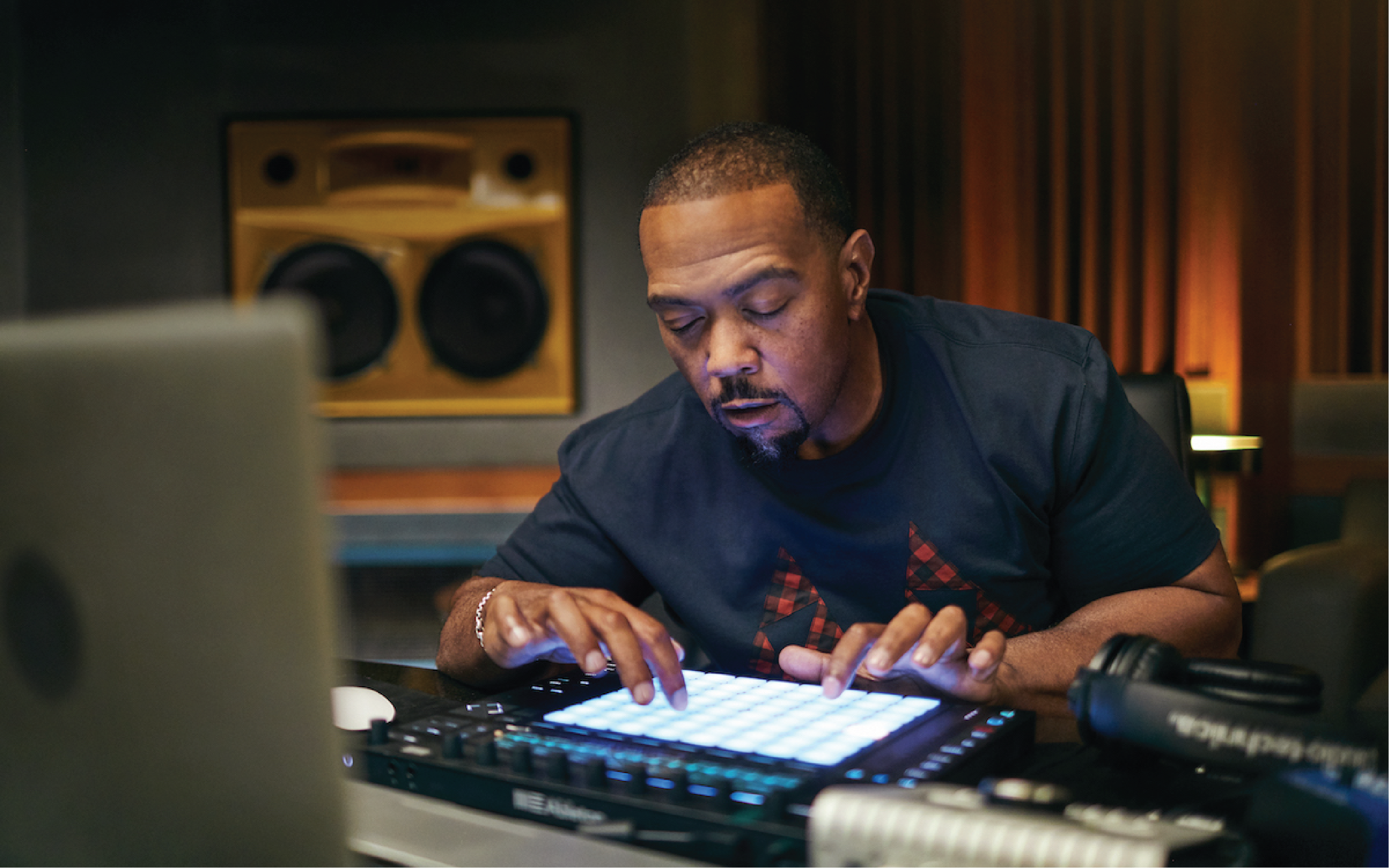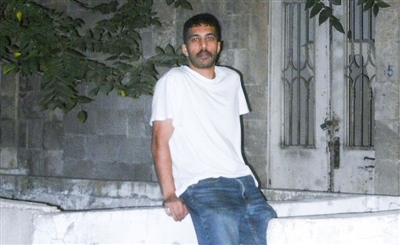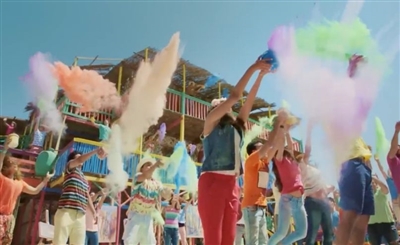Is it Really Too Late to Apologize? Looking Back at Timbaland’s Sordid Love Affair with Arab Music
Right or wrong, there’s always a sense of pride when MENA artists, old and new, are recognised by the west. One man, however, has consistently gone a little too far in his appreciation for Arab musical heritage: Timbaland.

A couple of weeks ago, legendary US producer, Timbaland, posted an instagram story in which he could be seen bopping his head to traditional Moroccan Gnawa music, a highly niche genre usually only known to locals, but, as Timbaland claims, could easily go viral and become a worldwide trend.
Timbaland’s musical flair and production genius have established him as arguably one of the main architects of modern-day American pop and R&B, fuelling his craft by potentially surprising, to say the least, choices of samples. From Sherine to Warda all the way up to Abdel Halim Hafez, the Virginia Beach native has sampled them all, which is something we should all be celebrating, right? No.
Over the past couple of years, several controversies have stemmed from the use of these samples, with some even challenging Timbaland’s legendary title wondering whether he genuinely is a musical virtuoso or just another devious culture vulture. Here, we look back at three tracks that have seen the producer turn to iconic Middle Eastern songs, each of which have gone on to build Timbaland’s well-acclaimed reputation - but to the detriment of Middle Eastern music.
Jay-Z - Big Pimpin’ (Abdel Halim Hafez - Khosara)
In 1957, Egyptian icon Abdel Halim Hafez sang the lines of the very morose Khosara: an up-beat but sentimental track that rocked the casbahs from Cairo all the way up to Casablanca. Originally written by Baligh Hamdi, the song was met with huge success across the Arab world becoming almost eponymous of 20th-century popular Egyptian culture.
<iframe width="560" height="315" src="https://www.youtube.com/embed/ZbtGXrlB6QM" frameborder="0" allow="accelerometer; autoplay; clipboard-write; encrypted-media; gyroscope; picture-in-picture" allowfullscreen></iframe>
Fast forward several decades later, a young and up and coming Jay-Z releases Big Pimpin’ in 1999 which assures his title of New Prince of New York. Sampling almost note for note the above-mentioned track, the song exhibits a younger Jay-Z puffing cigars on a yacht, pledging allegiance to the ‘pimpin’ lifestyle, which is, having sex and spending big stacks of cash without counting - imagery that is very far from Abdelhalim’s and Hamdi’s original ballad.
Peaking at #18 on the Billboard Hot 100, the track is undoubtedly one of Jay-Z’s most successful singles, regardless of the contractual disputes it has been involved in over the years. A court case was opened in 2007 by Baligh Hamdi’s nephew, Fahmy, pointing his finger at the American duo’s alleged illegal use of sample. It’s not the first time that the pair has been confronted with this same issue despite previous efforts to resolve already existing licensing troubles.
<iframe width="560" height="315" src="https://www.youtube.com/embed/Cgoqrgc_0cM" frameborder="0" allow="accelerometer; autoplay; clipboard-write; encrypted-media; gyroscope; picture-in-picture" allowfullscreen></iframe>
Claiming that neither the record label or the artists themselves were ever consulted, Fahmy’s updated claim also mentions how his predecessor would have never allowed such lyrics to be associated with his work due to the supposed immoral nature of Jay-Z’s take on the music. Deemed to be not strong enough, the case was rapidly dropped, some stating that “even in Egypt, Fahmy’s moral rights would be insufficient to win him anything but an injunction” and therefore closing the case once and for all.
Aaliyah - Don’t Know What To Tell Ya (Warda - Batwanes Beek)
Even today, many #mourn the premature death of Timabaland’s protégé, Aaliyah, who lost her life at the tender age of 22 in 2001. Emerging on the scene as a teen (she was signed to her first deal at 12), Aaliyah quickly became one of the most sought after artists of the 1990’s, proving to not only be a very talented singer but also a very gifted actress. Her music beamed across all five continents, but without having necessarily cleared the samples used in many of her worldwide hits.
<iframe width="560" height="315" src="https://www.youtube.com/embed/Bdg670atb2Q?start=160" frameborder="0" allow="accelerometer; autoplay; clipboard-write; encrypted-media; gyroscope; picture-in-picture" allowfullscreen></iframe>
Initially set to be released onto her third studio album in 2001, Don’t Know What To Tell Ya was eventually included onto Aaliyah’s first posthumous compilation project in 2002 and was met with international success almost immediately. Produced by Timbaland, the song sampled ‘Batwanes Beek’ by the Algerian icon, Warda: a timeless serenade still very popular amongst older generations as much as the younger ones.
<iframe width="560" height="315" src="https://www.youtube.com/embed/xOhRj-3jFFI" frameborder="0" allow="accelerometer; autoplay; clipboard-write; encrypted-media; gyroscope; picture-in-picture" allowfullscreen></iframe>
Warda’s ballad tells a passionate love story emphasising how emotionally dependent and involved she is. Whilst the use of this sample on Aaliyah’s track could be deemed as a honorific tribute to the singer, the harsh reality is that Warda’s name is barely even mentioned, only adding to the long list of songs Timbaland has attempted to discreetly reappropriate.
Fabolous ft Ne-Yo - Make Me Better (Sherine - Al Saaban Ale)
Can we even talk about the 2000’s era without mentioning the guaranteed hit-makers Fabolous and Ne-Yo? Two men who made the ‘guest appearance’ into an art, they sold millions and reached the top of the charts regularly in the 2000’s, especially when Timbaland was behind the wheel. ‘Make Me Better’ was one such hit that was met with international popularity.
<iframe width="560" height="315" src="https://www.youtube.com/embed/zyz1oAHY-_g" frameborder="0" allow="accelerometer; autoplay; clipboard-write; encrypted-media; gyroscope; picture-in-picture" allowfullscreen></iframe>
As we know, things usually come in threes, and Sherine’s song is also about a past passionate love - a collection of well-encoded lyrics she aims at a lost companion. The Egyptian favourite initially released her track in 2006 and it was sampled the following year, adding to the long collection of Arab samples used by Timbaland throughout his tumultuous career. Too repeat, it took only one year for Timbaland to pick up on it and shamelessly use it.
<iframe width="560" height="315" src="https://www.youtube.com/embed/UR_VnRD4Fow?start=160" frameborder="0" allow="accelerometer; autoplay; clipboard-write; encrypted-media; gyroscope; picture-in-picture" allowfullscreen></iframe>
Abject cultural appropriation or appreciation, this issue has given birth to a lot of controversies but is it really too late for Timbaland to apologise?
- Previous Article test list 1 noise 2024-03-13
- Next Article Egypt’s Dirty Backseat Debuts New Music Video ‘River’ Ahead of Upcoming EP
Trending This Month
-
Jan 29, 2026
-
Feb 20, 2026






















